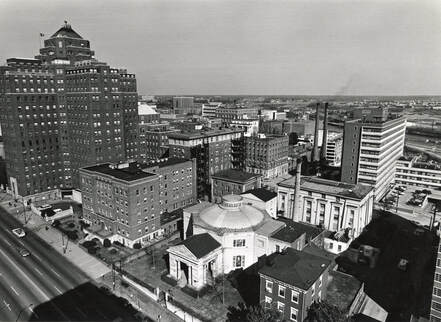 Thanks to everyone for your thought provoking, inspiring, and engaging remarks about The Organ Thieves. As readers contact me from across the U.S. and abroad, I hope to share some of them. So far, you’ve addressed a number of intriguing topics – from the treatment of Black patients at the old Medical College of Virginia in the 1960s to the systemic racism of early American medical education. Many of you have said the book has helped expand your historical horizons during this year of national reckoning. Feel free to send me more thoughts about how the book has affected you, and, if possible, let me know if you’re OK with me sharing them on this blog (including whether or not you’d like your name to be used). Meanwhile, I’ll keep you posted on other book-related developments, including ways to honor the memory of Bruce Tucker and his descendants. In this first round of reflections, we start with two retired doctors who studied at MCV in the 1960s-1970s. Both vividly recall their time with the two star surgeons profiled in the book, Dr. David Hume and Dr. Richard Lower. “I was an ob-gyn resident at MCV in 1971,” wrote Dr. Bruce Bernie of Charleston, South Carolina, “and started med school at MCV in 1968. Your book was phenomenal and brought back rather bittersweet memories of my training.” Dr. Bernie noted Hume’s “high intensity” personality (along with some other choice words). Still, he found him to be a “great teacher.” Overall, though, he said, “My experience at MCV was an environment of anti-Semitism, homophobia, and outright racial prejudice.” He called “part of the training at [former segregated, all-Black] St. Philip Hospital “unbelievably primitive and dehumanizing.” Looking back, he wrote, “Now I am sorry that I was not more proactive” about speaking out about what he saw. “Thank you so much for writing this book,” Bernie wrote. “It has taken 50 years for me to finally face the real systemic racism at that time.” Dr. Bill Crouch, a retired cardio-thoracic surgeon from Colorado Springs, Colorado, offered a different perspective. “Recently read and enjoyed Organ Thieves,” he wrote. “I, along with 5 of my peers, were surgical residents at MCV during this time. Have communicated with each of them about the book, all either read or reading now.” Crouch reported that he was initially put off by what he called the “incrimination of Hume & Lower, two of our ‘heroes’ at MCV. As I got deeper into the book I was so impressed by the research and assimilation of information about this time, even without trial documents.” Speaking of his peers, he continued, “Your book has given us the opportunity to re-connect after many years and to reminisce about life as poor, overworked surgical residents. We all feel that although we had miserable hours, we probably had as much fun at MCV as in any of our subsequent practices. There was a wonderful esprit there among the surgical house staff to a great extent from the charisma of Drs. Hume and Lower. “ “I think the only facet we disagree on is the discrimination of blacks at MCV during the ’60s. We all felt indigent patients got as good, if not better care, than private patients. We, as house staff, cared for them diligently around the clock.” Regarding the book’s assertions about the hospital’s anemic attempts to contact the family of Bruce Tucker before removing his heart and kidneys without any prior consent, Crouch said he and his peers “felt attempts at notification of Bruce Tucker’s family were all that could be done… The urgency of time applied to this decision.” |
Chip JonesChip Jones is an award-winning author, journalist and former communications director of the Richmond Academy of Medicine. The Organ Thieves is his fourth book. Archives
October 2023
|

 RSS Feed
RSS Feed